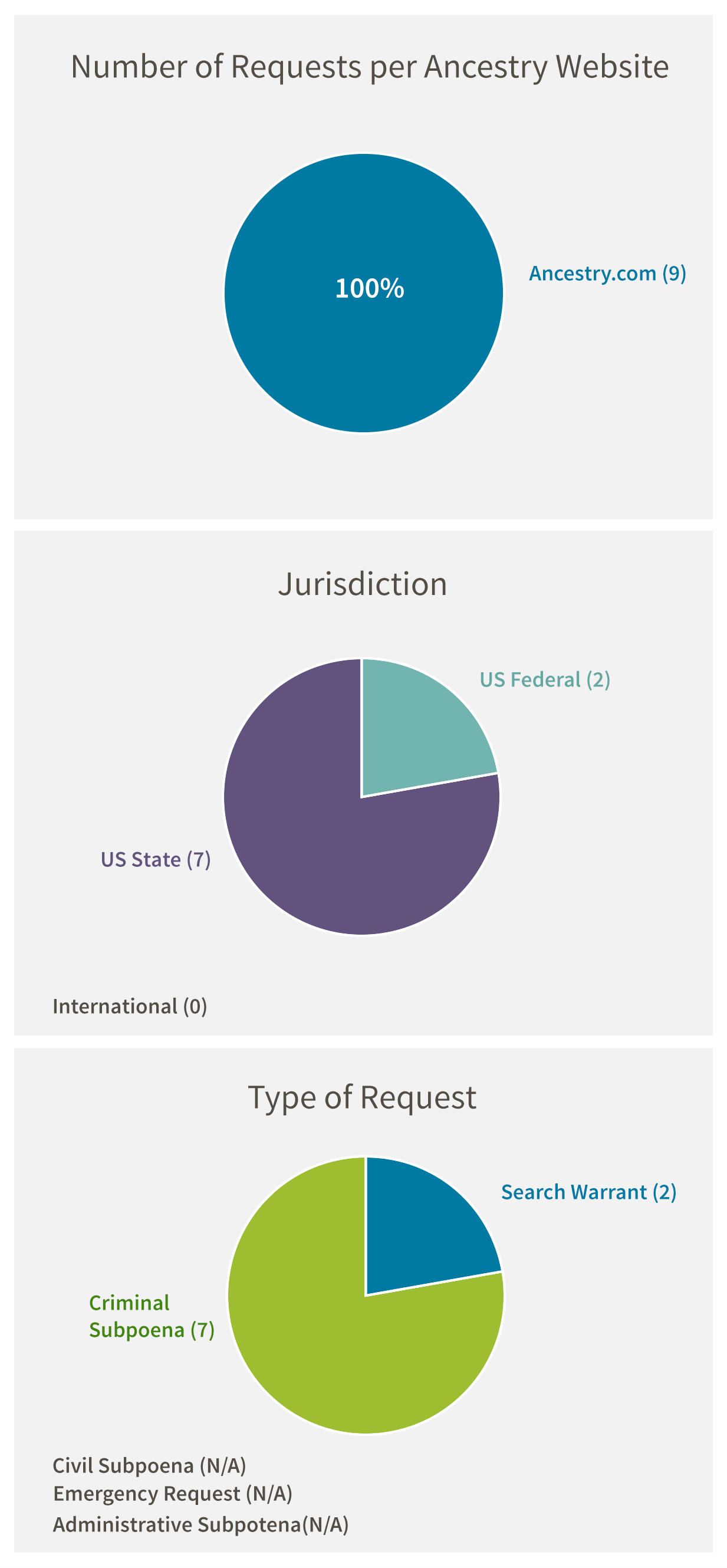Ancestry 2019
Transparency Report
At Ancestry, privacy is our top priority. Below is our transparency report for 2019, which covers law enforcement requests for member data. This report covers requests addressed to all Ancestry brands.
As explained in our Guide for Law Enforcement and our Privacy Statement, Ancestry requires valid legal process in order to produce information about our members. We comply with legitimate requests in accordance with our Privacy Statement.
Overview
- In 2019, Ancestry received nine valid law enforcement requests for user information. We provided information in response to six of those nine requests.
- Eight of the nine requests related to criminal investigations involving credit card misuse, fraud, and identity theft.
- Ancestry received one request seeking access to Ancestry’s DNA database through a search warrant. Ancestry challenged the warrant on jurisdictional grounds and did not provide any customer data in response.
- Ancestry also refused numerous inquiries on the basis that the requestor failed to obtain the appropriate legal process.
National Security Requests
As of December 31, 2019, Ancestry has never received a classified request pursuant to the national security laws of the United States or any other country. In other words, Ancestry has not received a National Security Letter or a request under the Foreign Intelligence Surveillance Act.
